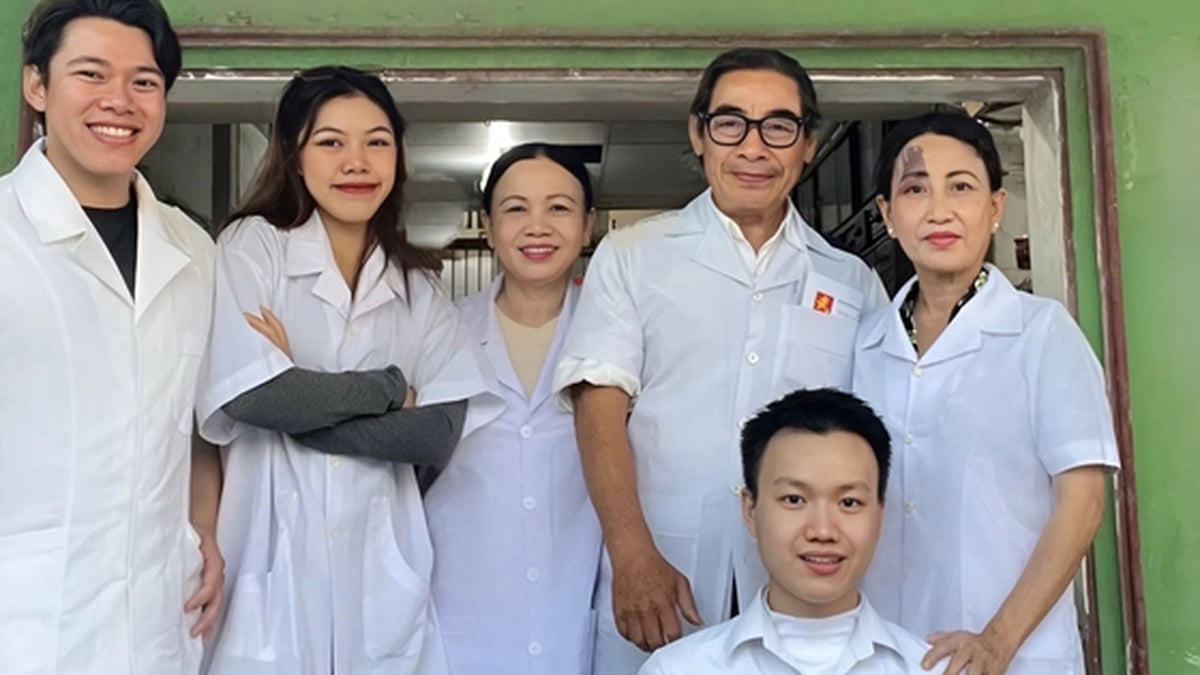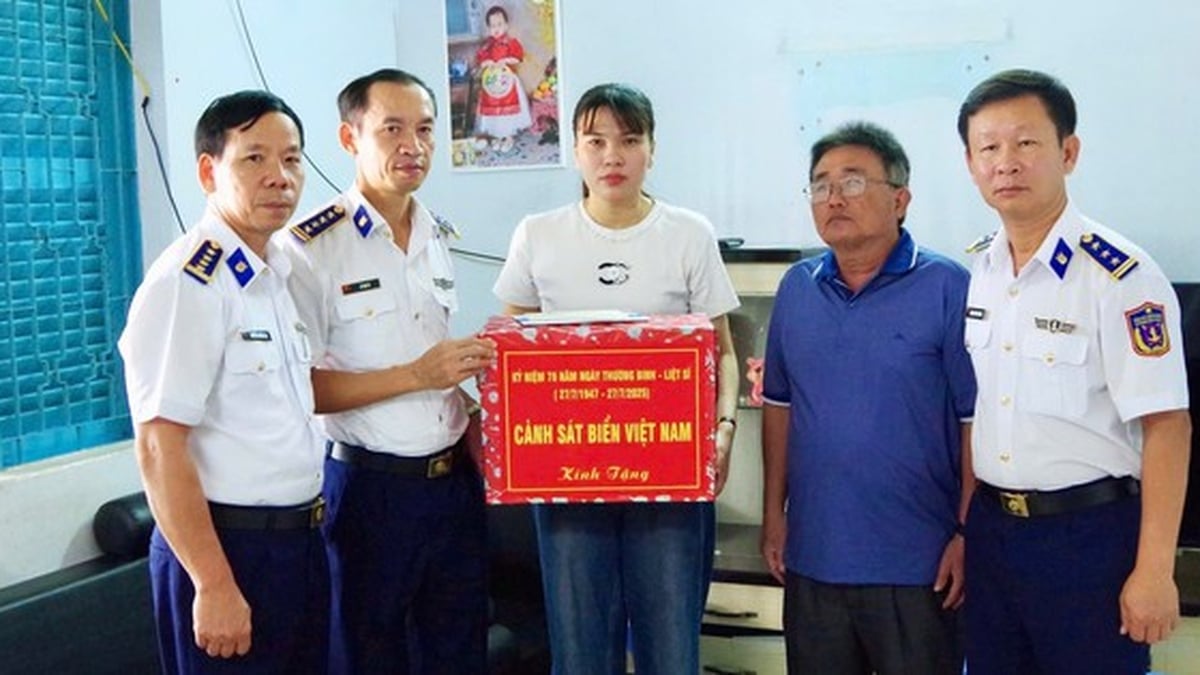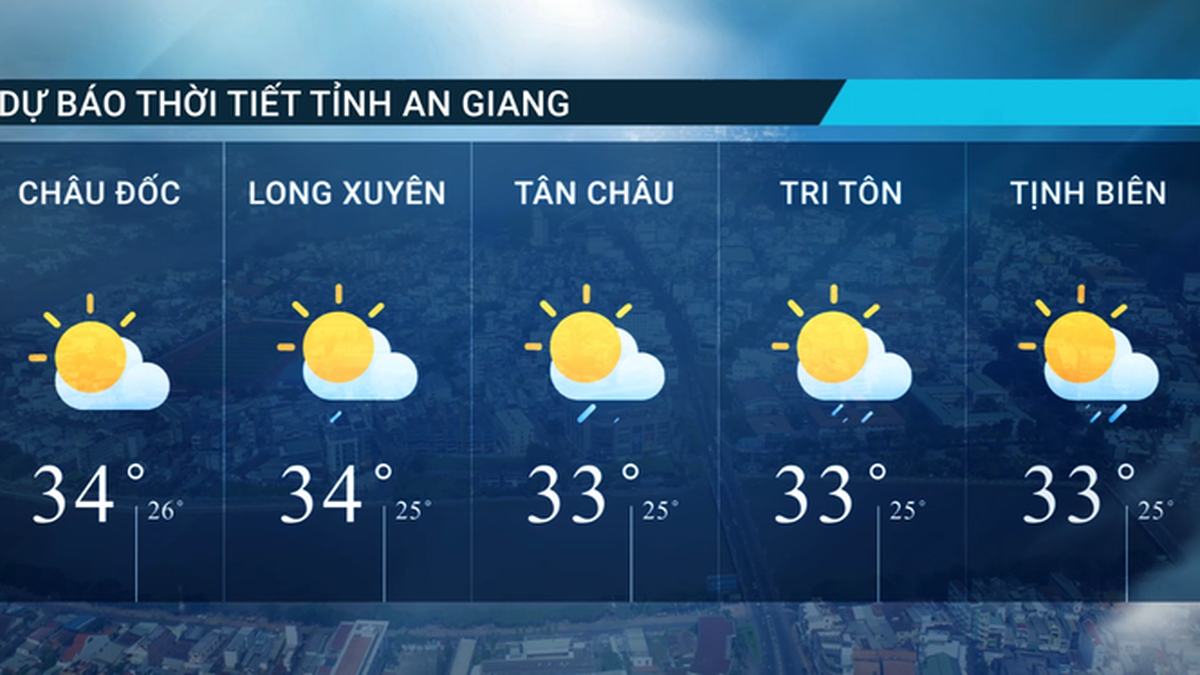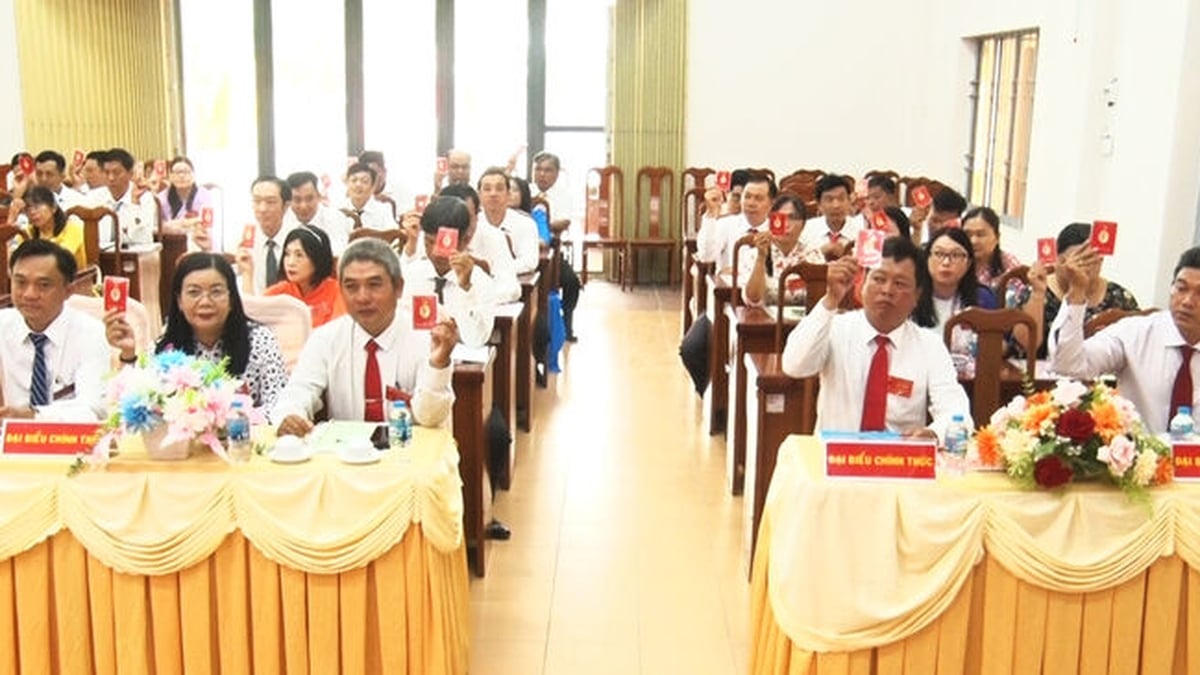Close to the creators
President Ho Chi Minh once affirmed that: “Culture and art are also a front. You are soldiers on that front. Like other soldiers, artistic soldiers have a certain duty, which is to serve the resistance, serve the Fatherland, serve the People, first of all the workers, farmers, and soldiers”...
At the 3rd National Congress of Literature and Arts (1962), People's Artist Tra Giang recalled that when she met Uncle Ho, he gave her a kind instruction that she will always remember: "Doing literature and arts means expressing the joys and sorrows of life in plays and films. That is very meaningful. Artists must be soldiers on that front."
In the book “Ho Chi Minh with artists, artists with Ho Chi Minh”, cinematographer Le Minh Hien said: “During the time living close to Uncle Ho, we learned great lessons about the spirit of serving the people and the country, the ethics of diligence, thrift, integrity, impartiality, simplicity, modesty, and Uncle Ho’s scientific working style. Uncle Ho always reminded us about a simple, neat, and orderly lifestyle. Uncle Ho was always quick and neat. When we went to film Uncle Ho, we had to practice to get used to it, otherwise we would miss work. Uncle Ho also reminded us to exercise and taught us martial arts to be healthy and do good deeds.”
Mr. Hoang Dao Thuy once said that when he met Uncle Ho, he felt his inner strength multiplied and was willing to follow him to serve the Fatherland and the People. In the eyes of artist Do Cung, Uncle Ho was both an excellent politician and a very ordinary person. He observed that a government leader wearing a simple brown suit, sitting and working in the Northern Palace was as beautiful as a painting, very ordinary, simple and elegant.
Film director Pham Van Khoa, who had the great honor of meeting and working with President Ho Chi Minh in the early days of the August Revolution in 1945 and the early days of 1950, always remembers Uncle Ho's words: "Nothing is more precious than independence and freedom", so "if we can save the country, we must endure any bitterness".
To Huu is a person who writes a lot about Uncle Ho. In all his poetry collections, there is the image of President Ho, the man who fought for the revolution to find a way out for the enslaved and miserable people. It is a fact that when he wrote "Ho Chi Minh", To Huu had not met Uncle Ho and only after writing this poem did he meet Uncle Ho. And from then on, throughout his life, the poet always wrote about Uncle Ho with respect and passion.
"A very noble life without any privacy"
The lyrics we often hear: “You come back to bring joy/Autumn sunshine shines on Ba Dinh…”. That is the song “Praise to President Ho” composed by musician Van Cao in 1950. A song that we still listen to forever, especially on the occasion of our country’s National Day.
 |
Uncle Ho and People's Artist Tra Giang. (Photo: Archive) |
Van Cao was a great musician, he was present in the early days of the resistance war against the French, so he understood the spirit of the August Revolution, the boiling, joyful atmosphere of Independence Day September 2, 1945. The eldest son of musician Van Cao - painter Van Thao said: "The melody and lyrics of the opening song were inspired by the image of Uncle Ho reading the Declaration of Independence at Ba Dinh Square on September 2, 1945. At that time, Van Cao stood below as a member of the Viet Minh with tens of thousands of other compatriots looking up to the stage to listen to Uncle Ho's voice.
“The return brings Spring to life/From the barren land, from the mud, a whole life blossoms/Many pioneer workers lead the people to rise up/The people follow each step of their father, winning freedom for a thousand years”. An atmosphere on the great day of the nation. The birth day of the Democratic Republic of Vietnam, rebirth of countless Vietnamese people in the years of exile and slavery.
The song “Praise to President Ho” was introduced by musician Van Cao on the occasion of Uncle Ho’s birthday in 1949. Immediately after that, the song was loved by many people and became one of the best songs written about President Ho Chi Minh.
The journey of the young man Nguyen Tat Thanh from Nha Rong Wharf, to save the country but later became the beloved leader of the People, Uncle Ho did not return to the South. Therefore, he always had special feelings for the people of the South. Uncle Ho said many times: "The beloved South is always in my heart". "Uncle misses the South, the feeling of missing home/The South longs for Uncle, the feeling of missing his father" (To Huu).
In the song “Praise to President Ho”, musician Van Cao wrote: “So much pain in the South in the hearts of Vietnam/A wave of hatred and belief in success is rising/Uncle Ho Chi Minh, the will of thousands in one person/The name of the homeland, the soul of the North and South/Uncle Ho Chi Minh, the torch that lights the way/The empire is completely destroyed before the people's surge/Glory to the Vietnamese people!”.
Commenting on the singers who performed the song “Praise to President Ho”, artist Van Thao said he was impressed with the voice of People’s Artist Quy Duong. “Later, among the young singers, I liked the performance of Meritorious Artist Dang Duong”.
When we were young, we always remember the writer Son Tung writing about Uncle Ho. Until now, his most famous work is still “Blue Lotus”. First published in 1982, the work has been reprinted dozens of times and has left a deep impression on many generations of Vietnamese people. The book had an introduction written by Prime Minister Pham Van Dong in the first reprint.
Since 1948, writer Son Tung has met directly with Mrs. Thanh and Mr. Khiem - Uncle Ho's siblings, and the family has provided him with valuable documents about his life and family background. After that, the writer traveled all over the country following in the footsteps of Mr. Pho Bang Nguyen Sinh Sac - the father of President Ho. He also visited the places where the young man Nguyen Tat Thanh had gone, met people who knew the young man Nguyen Tat Thanh such as the sailor who had known Uncle Ho since 1913, met Mrs. Le Thi Hue - "his first love and had photos and poems sent to her by Nguyen Tat Thanh". Along with collecting and researching "international documents, books and newspapers about Uncle Ho, especially stacks of secret documents and papers"...
Along with “Blue Lotus”, writer Son Tung also has the work “Teacher Nguyen Tat Thanh at Duc Thanh School”, which was first published in 2016, nearly three decades after writer Son Tung completed the work. The manuscript of the book was collected by writer Son Tung’s son from his father’s handwritten pages. We see the thoughts and feelings of the young man Nguyen Tat Thanh when the country was enslaved, before his father’s constant pain “The country is lost! The house is broken! Go, my son. Tat Thanh! Tat Thanh…”.
The novel “The Separation on Ben Nha Rong” by writer Son Tung was adapted from the script of the film “See You Again Saigon” - a film released in 1990 and loved by many audiences. The story is about the noble and beautiful love of the girl Le Thi Hue (Ut Hue) and the young man Nguyen Tat Thanh, about patriotism and family love, “when the Fatherland needs them, they know how to live apart”.
It is impossible to list all the compositions about Uncle Ho, but there is a song I listened to a lot when I was a teenager, "Uncle Ho, a boundless love", written by musician Thuan Yen in 1979. He was inspired by the time he met Uncle Ho in 1966 and his thoughts about his great affection, love and affection for his compatriots and the people of the whole country.
The song was first broadcast on the Voice of Vietnam radio with the voice of singer Thanh Hoa, immediately becoming an excellent song about Uncle Ho. Musician Thuan Yen once shared that he did not have many opportunities to meet Uncle Ho. The musician wrote about him, mainly from his feelings and stories, what he saw, heard, read, such as: the work "Blue Lotus" by writer Son Tung, the film "Ho Chi Minh - Portrait of a Man" by director Bui Dinh Hac... He has nearly 30 works written about Uncle Ho.
Source: https://baophapluat.vn/chan-dung-bac-ho-qua-goc-sang-tao-cua-van-nghe-post548726.html

































































































Comment (0)